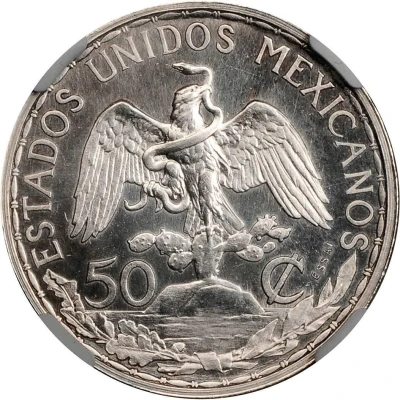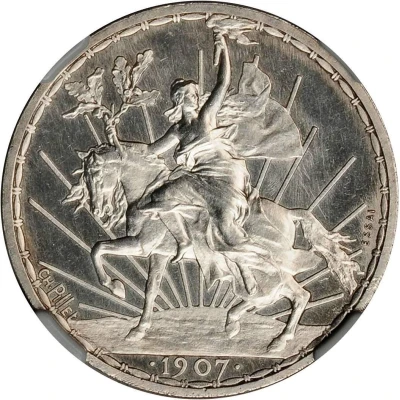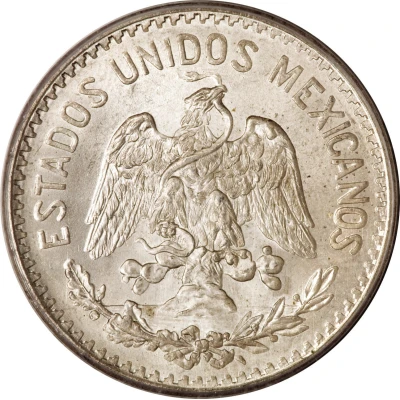


50 Centavos Pattern; Caballito; Plain Edge; Silver
1907 year| Silver (.903) | 11.2 g | 30 mm |
| Issuer | Mexico |
|---|---|
| Period | United Mexican States/Mexican Republic (1823-date) |
| Type | Pattern |
| Year | 1907 |
| Value | 50 Centavos (0.50 MXP) |
| Currency | Peso (1863-1992) |
| Composition | Silver (.903) |
| Weight | 11.2 g |
| Diameter | 30 mm |
| Shape | Round |
| Technique | Milled |
| Orientation | Coin alignment ↑↓ |
| Demonetized | Yes |
| Updated | 2024-10-06 |
| Numista | N#69489 |
|---|---|
| Rarity index | 95% |
Reverse
Liberty riding a horse. On her right hand an oak branch and on her left a flaming torch, with the sun raising on the horizon. The assayer's name at left near rim, and the word ESSAI near the right rim.
Script: Latin
Lettering:
CH. PIllEt
ESSAI
•1907•
Translation:
Charles Pillet
Trial
Engraver: Charles Pillet
Edge
Plain
Comment
This coin was kept together with KM#Pn183, indicating that both were made as a proposition set for the Mexican Mint and presented together.
This coin would be minted for the centenary of Mexico's independence, during the period in which the Resplandor Peso was not minted. Pablo Luna (Las Pruebas De La Moneda Mexicana Del Siglo XX) mentions that in 1907 Pillet delivered a package with dies, punches, ferrules, dies and three silver pattern coins; this according to Dr. Alberto Pradeau. But according to Veracruz' customs reports from 1907, the package did not have the three coins. The coins would actually be minted in January 1908, in Mexico.
In addition to this pattern coin, Pablo Luna mentions that two unifacial medallions were made in bronze, one with a more pronounced relief and the other less so. Another difference is the weight, with the lightest medallion weighing 108.7 gr. Both medallions had a diameter of 38mm.
Interesting fact
The Pattern 50 Centavos coin from Mexico, made in 1907, has an interesting feature. It has a plain edge, which is unusual for coins from that time period. Most coins from the early 1900s had milled or reeded edges, but this coin has a smooth edge. This feature makes it stand out from other coins of its time and adds to its unique character.

